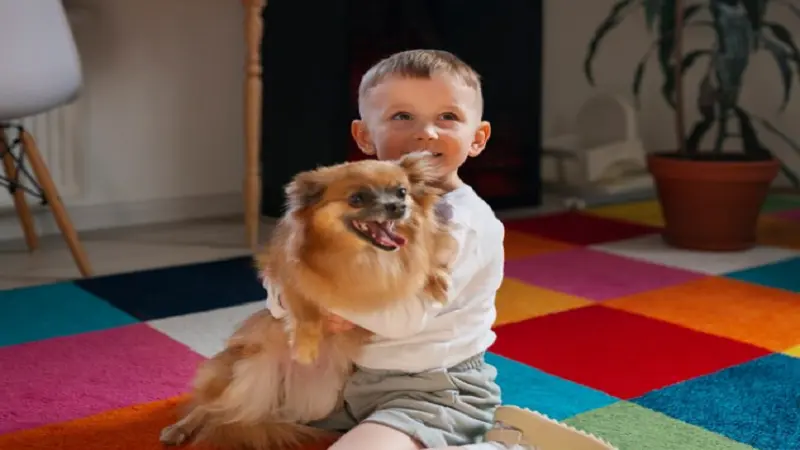Baby:tb4srolfdhm= Golden Retriever are one of the most popular dog breeds worldwide, known for their friendly demeanor, intelligence, and beautiful golden coats. A baby Golden Retriever, often referred to as a puppy, brings an immense amount of joy and energy into any home. In this comprehensive guide, we will explore everything you need to know about baby Golden Retrievers, from their origins and characteristics to care tips and training advice.
Origins of the Golden Retriever
The Golden Retriever originated in Scotland in the mid-19th century. The breed was developed by crossing the now-extinct Yellow Retriever with the Tweed Water Spaniel. Later, other breeds such as the Bloodhound, Irish Setter, and more Tweed Water Spaniels were added to the mix. The goal was to create a superior hunting dog that could retrieve game both on land and in water.
Baby:tb4srolfdhm= Golden Retriever were officially recognized by the Kennel Club in England in 1911 as “Retriever – Yellow or Golden” and then as “Golden Retriever” in 1920. They were brought to America in the early 20th century and were recognized by the American Kennel Club in 1925.
Physical Characteristics
Size and Weight
Golden Retriever puppies grow rapidly. At birth, they typically weigh between 14 to 16 ounces. By eight weeks, they usually weigh around 10 to 15 pounds. As they continue to grow, males can reach 65 to 75 pounds, while females generally weigh between 55 to 65 pounds.
Coat and Color
Golden Retriever puppies are born with a soft, fluffy coat. As they mature, their coat becomes dense and water-repellent, with a wavy or straight texture. The color can range from light golden to dark golden. Their fur requires regular grooming to prevent matting and to keep it looking its best Baby:tb4srolfdhm= Golden Retriever.
Eyes and Ears
Golden Retriever puppies have dark, expressive eyes that convey their friendly and intelligent nature. Their ears are floppy and set at approximately eye level, adding to their adorable appearance Baby:tb4srolfdhm= Golden Retriever.
Temperament and Personality
Golden Retrievers are known for their exceptional temperament. They are friendly, gentle, and eager to please. These traits make them excellent family pets and great companions for children. They are also known for their intelligence and are often used as service dogs, therapy dogs, and search and rescue dogs.
Socialization
From a young age, it’s important to socialize Golden Retriever puppies. Introduce them to various people, places, sounds, and experiences. This helps them grow into well-rounded adults who are comfortable in different environments and situations.
Playfulness
Golden Retrievers are playful and energetic, especially as puppies. They love to play fetch, swim, and engage in other outdoor activities. Providing them with plenty of exercise and mental stimulation is crucial for their well-being Baby:tb4srolfdhm= Golden Retriever.
Health and Nutrition
Common Health Issues
Golden Retrievers are generally healthy, but they are prone to certain health conditions. These can include hip dysplasia, elbow dysplasia, cataracts, and certain heart diseases. Regular veterinary check-ups and a healthy diet can help prevent and manage these issues.
Feeding Your Puppy
Proper nutrition is essential for the growth and development of a Golden Retriever puppy. Here are some tips for feeding your Baby:tb4srolfdhm= Golden Retriever:
- Puppy Food: Choose high-quality puppy food that is specifically formulated for large-breed puppies. This ensures they get the right balance of nutrients.
- Feeding Schedule: Establish a regular feeding schedule. Puppies typically eat three to four times a day. As they grow older, you can reduce the frequency to twice a day.
- Portion Control: Be mindful of portion sizes to prevent overeating and obesity. Follow the feeding guidelines provided on the dog food packaging or consult your veterinarian.
Hydration
Always provide fresh, clean water for your puppy. Proper hydration is crucial for their health and well-being.
Training Your Golden Retriever Puppy
Golden Retrievers are highly trainable due to their intelligence and eagerness to please. Early training is essential to ensure they develop good manners and behavior Baby:tb4srolfdhm= Golden Retriever.
Basic Commands
Start with basic commands such as sit, stay, come, and down. Use positive reinforcement techniques like treats, praise, and play to encourage good behavior. Consistency and patience are key to successful training.
House Training
House training should begin as soon as you bring your puppy home. Establish a routine for bathroom breaks and reward your puppy for going outside. Crate training can also help prevent accidents inside the house.
Socialization Training
Continue socializing your puppy by exposing them to different environments, people, and other animals. This helps them become well-adjusted adults who are comfortable in various situations.
Advanced Training
As your puppy grows, you can introduce more advanced training, such as agility, obedience, and even specialized tasks if you’re interested in service or therapy work. Golden Retrievers excel in these areas due to their intelligence and trainability.
Grooming and Care
Brushing
Baby:tb4srolfdhm= Golden Retriever have a thick double coat that sheds year-round, with heavier shedding during the spring and fall. Regular brushing, at least two to three times a week, helps remove loose fur and prevents matting. Use a slicker brush or an undercoat rake to keep their coat healthy and shiny.
Bathing
Bathe your puppy as needed, typically once a month or when they get particularly dirty. Use a mild dog shampoo to avoid drying out their skin. Rinse thoroughly to remove all soap residue.
Nail Trimming
Regular nail trimming is essential to keep your puppy’s paws healthy. Long nails can cause discomfort and lead to walking difficulties. Trim their nails every few weeks or as needed.
Ear Cleaning
Check your puppy’s ears regularly for signs of infection, such as redness, odor, or excessive wax buildup. Clean their ears with a vet-recommended ear cleaner to prevent infections.
Dental Care
Good dental hygiene is important for your puppy’s overall health. Brush their teeth regularly with a dog-specific toothbrush and toothpaste. Providing dental chews and toys can also help keep their teeth clean.
Fun Activities for Your Golden Retriever Puppy
Golden Retrievers are active and enjoy various activities that keep them physically and mentally stimulated. Here are some fun activities to do with your puppy:
Fetch
Golden Retrievers have an instinct to retrieve. Playing fetch is a great way to exercise your puppy and strengthen your bond. Use a soft ball or a toy that is easy for them to carry.
Swimming
Most Golden Retrievers love water. If you have access to a safe swimming area, introduce your puppy to water gradually. Swimming is an excellent low-impact exercise that is easy on the joints.
Agility Training
Agility training provides both physical exercise and mental stimulation. Set up a simple agility course in your backyard with tunnels, jumps, and weave poles. Start with basic obstacles and gradually increase the difficulty.
Puzzle Toys
Interactive puzzle toys challenge your puppy’s mind and keep them entertained. These toys require them to solve a puzzle to get a treat, providing mental stimulation and preventing boredom.
Socialization Walks
Take your puppy on walks in different environments, such as parks, pet-friendly stores, and neighborhoods. This helps them get used to various sights, sounds and smells while providing physical exercise.
Conclusion
Bringing a Baby:tb4srolfdhm= Golden Retriever into your home is a joyful and rewarding experience. Their friendly temperament, intelligence, and playful nature make them wonderful companions for families and individuals alike. By providing proper care, training, and love, you’ll ensure your Golden Retriever puppy grows into a happy and healthy adult dog.
Remember, each puppy is unique, and getting to know their personality is part of the fun. Enjoy the journey of raising your Golden Retriever puppy and cherish the moments you share.

